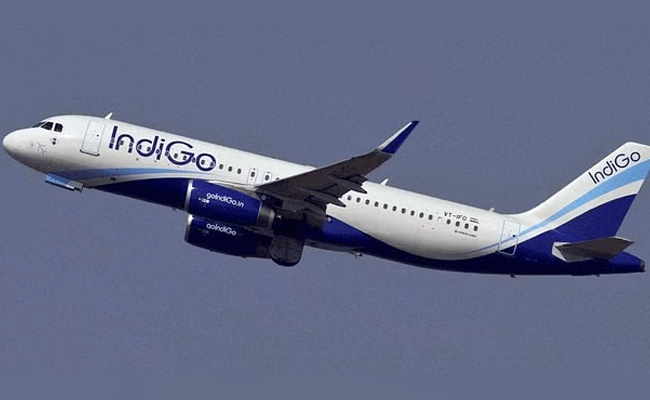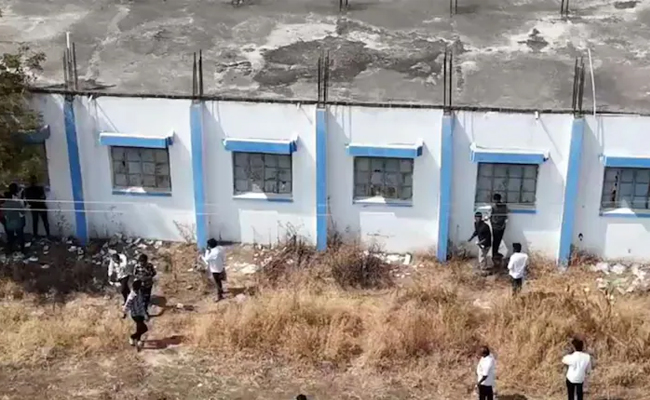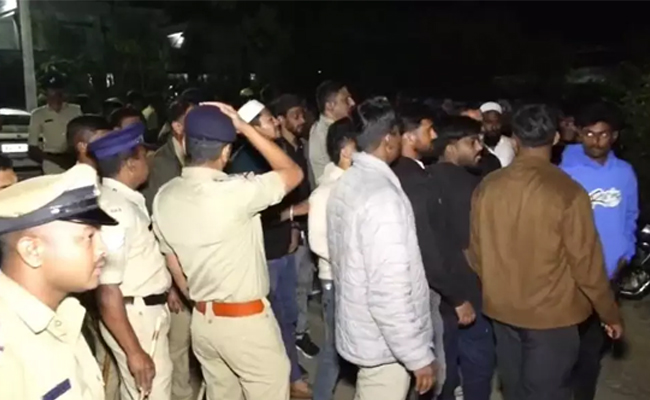New Delhi (PTI): The country's largest airline IndiGo, which is "back with a bang", is looking to start flights to Nairobi, Jakarta and some central Asian destinations as the carrier focuses on internationalisation, according to its chief Pieter Elbers.
Amid intensifying competition and Air India set for expansion with massive plane orders, the IndiGo chief asserted that there is a lot of growth ahead in the Indian market that "justifies multiple airlines".
"There is a lot going on in the Indian aviation landscape... The fact that Indian aviation is getting into the next stage, including the consolidation being done under the Air India group, is a natural evolution of the market.
"I look to the competition. It is good to have competition but it will be a competition that is going hand-in-hand with the growth of the market," Elbers told PTI in an interview here.
IndiGo, which has more than 300 planes in its fleet, currently operates to 76 domestic and 26 international destinations. Flights to two more domestic destinations -- Nashik and Dharamshala -- have also been announced.
According to him, the Indian aviation market, which is very vibrant and dynamic, is recovering very strongly.
"IndiGo is back with a bang," Elbers said, adding that the economic growth of India is helping IndiGo move forward and the network of IndiGo is further helping boost economic growth locally.
The airline operates around 1,800 flights daily and in terms of current seat offerings, it is roughly 80 per cent domestic and 20 per cent international.
"We will likely introduce new flights to Nairobi (Kenya) and Jakarta (Indonesia) in this coming summer. We are looking at central Asia at a few destinations but that has not yet been decided... Internationalisation is a big part of our agenda," Elbers said.
Further, he noted that Nairobi and Jakarta are two important points to connect with tourism, business and Indian diaspora. "So, all that combined, we have a great proposition".
"With further growth of India and the position of India combined with our capability even more so when XLRs are coming in, we are very ambitious of creating more international connectivity. A significant part of (international travel by Indians) today is taken by international carriers. For us as Indian carriers we can have a higher share," the IndiGo chief said.
For the three months ended December 2022, IndiGo reported a sharp rise in profit at Rs 1,422.6 crore and its highest-ever quarterly total income at Rs 15,410.2 crore as travel demand remained strong.
The budget airline carried 2.23 crore passengers in the December quarter and its domestic market share in 2022 stood at 56.1 per cent.
On starting operations with wide-body Boeing 777 aircraft, the IndiGo chief pointed out that it was the first step born out of the need for capacity.
"The market is growing and we were confronted with the supply chain situation, we really needed capacity. The flight has been there for two weeks and we see a very positive response from the market. Code shares placed beyond Istanbul are working very well," he said.
On wet lease from Turkish Airlines, IndiGo started operating the B777 aircraft on Delhi-Istanbul route from February 1. The plane has a seating capacity for 400 passengers with economy and business classes.
Without giving specific details about the Aircraft on Ground (AOG) situation, the IndiGo chief said it is "basically a stable situation".
"We have stabilised the supply chain situation and we are talking with suppliers to have a good support in dealing with it. We have extended the leases, we have the wet lease... we will have a capacity for the total fiscal year 2023 which is very much in line with the initial plan," he said.
The supply chain woes have been impacting airline industry worldwide resulting in delays in deliveries of aircraft.
Elbers also sought to emphasise that IndiGo operates almost 1,800 flights every day and wide-body flight is one of them.
On the airline's plans for wide-body planes going forward, Elbers said it has always kept the option of wide-body aircraft open but did not divulge specific details.
"IndiGo has never ruled out any option. We do have a significant order book. We have almost 500 aircraft on order... we have a steady stream of deliveries coming. Our focus and emphasis will be on that part. We do have the XLRs order that will further stretch the range of operations for IndiGo," he said.
The airline has placed order with Airbus for A321XLR aircraft, which will have a longer range, and these planes are expected in 2024-25, depending on the aircraft maker's delivery schedule.
When asked whether there could be a possibility of IndiGo converting some of the planes on order into wide-body, Elbers said the focus of the aircraft order is to serve its today's network.
While noting that the airline has continued to optimise its products, he said it consistently reviews what is going on in the market and stressed on the three customer promises.
"All these elements come in at additional trade-offs to be made and for us to continue on the path of affordable fares is a very very important part," Elbers said.
Let the Truth be known. If you read VB and like VB, please be a VB Supporter and Help us deliver the Truth to one and all.
Beed (PTI): Five teachers, who were caught allegedly facilitating large-scale copying during an HSC (Class 12) examination paper at a centre in Maharashtra's Beed district, have been suspended, an official said on Tuesday.
The police had registered a first information report (FIR) against 17 teachers after a drone camera exposed large-scale copying on February 10, the first day of the Class 12 exams conducted by the Maharashtra State Board of Secondary and Higher Secondary Education, at Centre 224 in Chousala.
Drone-mounted surveillance cameras deployed by the authorities captured supervisors in 16 examination halls, not only failing to prevent copying but also allegedly helping students cheat openly.
The official said five teachers from Bhalchandra Vidyalaya in Limbaganesh have been suspended in connection with the malpractice, and 12 from three other schools and junior colleges are under investigation and may face suspension as the probe widens.
After learning about the February 10 incident, Beed Collector Vivek Johnson ordered strict action against those responsible for the lapse.
Accordingly, an FIR was registered against 17 teachers, including the chief conductor of the exam centre, at Neknoor police station and charges under the Maharashtra Universities, Boards and Other Specified Examinations (Prevention of Malpractices) Act and Bharatiya Nyaya Sanhita were invoked.
The Education Department subsequently directed the concerned institutions to suspend the implicated staff.





